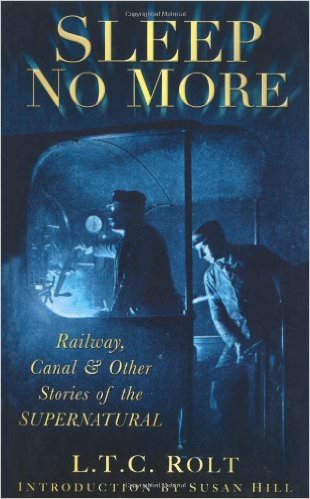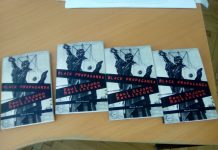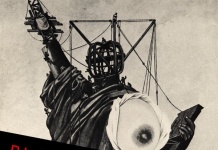 English engineer, historian of engineering and ghost story writer L.T.C. Rolt (1910-74) is one of the most curious survivals of the great tradition of M.R. James. His career parallels that of his friend Robert Aickman, also an enthusiast for England’s inland waterways, and a more celebrated writer of strange tales. Rolt himself only wrote one notable collection of 14 stories, Sleep No More: Railway, Canal and Other Stories of the Supernatural (1948), but this was distinguished by its use of period industrial settings as the venues for weird tales, in the spirit (to coin a phrase) of Charles Dickens’s “The Signal-Man.” Susan Hill, in her introduction to a recent edition of the book, wrote, “one of [Rolt’s] greatest strengths as a writer of stories of the supernatural is his ability to lead us, in an easy, relaxed way, into an apparently ordinary and pleasant world … it is only after he has settled us comfortably in the midst of it all, that he begins to slide the carpet gently from under our feet.”
English engineer, historian of engineering and ghost story writer L.T.C. Rolt (1910-74) is one of the most curious survivals of the great tradition of M.R. James. His career parallels that of his friend Robert Aickman, also an enthusiast for England’s inland waterways, and a more celebrated writer of strange tales. Rolt himself only wrote one notable collection of 14 stories, Sleep No More: Railway, Canal and Other Stories of the Supernatural (1948), but this was distinguished by its use of period industrial settings as the venues for weird tales, in the spirit (to coin a phrase) of Charles Dickens’s “The Signal-Man.” Susan Hill, in her introduction to a recent edition of the book, wrote, “one of [Rolt’s] greatest strengths as a writer of stories of the supernatural is his ability to lead us, in an easy, relaxed way, into an apparently ordinary and pleasant world … it is only after he has settled us comfortably in the midst of it all, that he begins to slide the carpet gently from under our feet.”
Rolt’s application of M.R. James’s carefully articulated conventions for ghost story writing to novel industrial settings paradoxically led to his work being called “perhaps the most refreshing” development of the Jamesian manner. “Rolt succeeds because the industrial setting he evokes is one about which he is passionate and knowledgeable.” And to quote Susan Hill again: “No one has as well succeeded in capturing the air of dankness and dreariness of lonely canals on gloomy, misty late afternoons in winter.” For anyone who finds the country house and collegiate settings of James’s tales, and the equally period snobbery, a little jarring after a while, the stories of L.T.C. Rolt could be an ideal antidote. Just expect to lose some sleep afterwards.

































